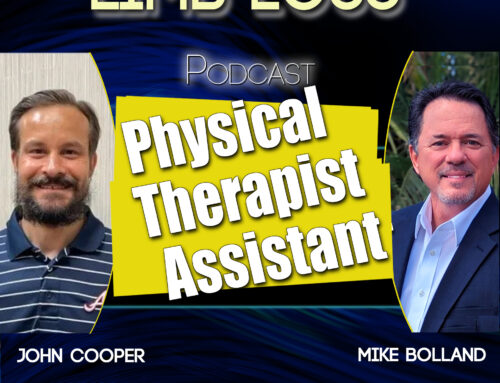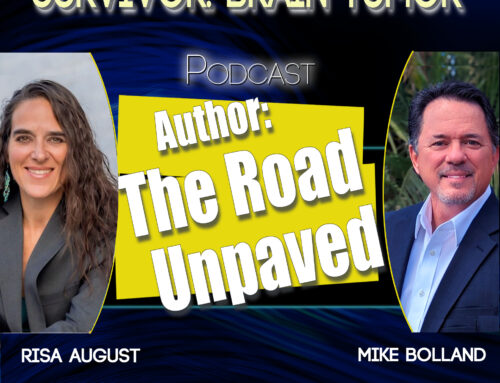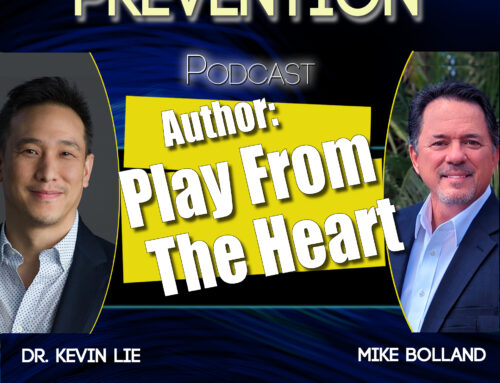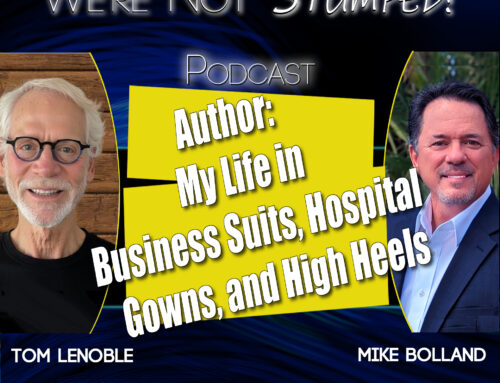Episode 15 of Season Two of the We’re Not Stumped podcast features Penta Medical Recycling. My guests from this great organization are founder Henry Iseman, Deputy Director Anna Szczepanek and Director of Operations Mijamin Strong.
The organization was founded in 2016, when a group of university students established Penta Medical Recycling with a dual mission: to make affordable prosthetic care accessible in low- and middle-income countries while repurposing medical waste in the United States.
This initiative stemmed from the recognition that a staggering 85-95% of the world’s 100 million amputees lacked access to proper prosthetic care and equipment. Meanwhile, hundreds of thousands of still functional but slightly outdated prostheses were being replaced and discarded annually in the United States.
Penta discovered a solution to address both of these pressing issues simultaneously. By collecting and refurbishing used prosthetic and orthotic equipment in the United States, they could declutter private homes, ease the burden on clinics responsible for disposing of unusable devices, and, most importantly, restore the ability to walk, work, and thrive for amputees worldwide.
In 2018, Penta Medical Recycling was officially incorporated as a 501(c)(3) nonprofit organization. Since then, it has evolved into a global operation collaborating with government health agencies, both private and public healthcare institutions, and various nonprofit organizations, both within the United States and internationally. Penta’s operations have expanded to encompass 16 different countries across six regions worldwide.
Links:
Penta Medical Recycling Website: https://pentaprosthetics.org
Penta Medical Recycling Facebook: https://www.facebook.com/penta.medical.recycling/
Penta Medical Recycling Instagram: https://www.instagram.com/penta.medical.recycling/
Penta Medical Recycling LinkedIn: https://www.linkedin.com/company/penta-medical-recycling/
#amputee #amputeelife #amputeestrong #prosthetics #prostheticleg #amplife #amputation #limbloss #amputees #adaptiveathlete #disability #amputeefitness #prosthetic #prosthesis #disabled #adaptive #iamadaptive #amputeelifestyle #oneleg #amputados #bionic #inspiration
Watch on YouTube
Listen on Spotify
The Amputee Coalition is undergoing another major transition with the resignation of President & CEO Cass Isidro, who announced her last day will be August 22nd. In her farewell message, Isidro stated that her work had been about “restoring the Amputee Coalition to its original purpose with deeper community engagement.” That statement raises difficult questions: 👉 Why did the Coalition need to be “restored” in the first place? 👉 Has the organization lost focus on directly serving amputees? 👉 What does this leadership change mean for peer support, advocacy, and resources moving forward? In this episode of We’re Not Stumped, host Mike Bolland dives into the resignation news, shares community concerns, and examines whether the Amputee Coalition is truly on track to support the limb loss and limb difference community—or if amputees should be worried about its direction. Listeners are invited to join the conversation as the podcast takes on tough questions about the Coalition’s mission, leadership, and future.
In this episode of We’re Not Stumped, Mike Bolland sits down with Meegan Winters, CEO and founder of AbleVu, the innovative accessibility search platform making the world easier to navigate for everyone. Meegan shares her inspiring journey—from special education teacher to tech entrepreneur—and how her friendship with Jessica, a power wheelchair user, sparked her mission to improve accessibility for all. Mike and Meegan explore AbleVu’s evolution from virtual tours to a “TripAdvisor for accessibility,” the business model that empowers contributors, and why accessible information benefits both consumers and businesses. Along the way, Meegan opens up about leaving a stable career, overcoming the challenges of building a startup, and the fulfillment that comes from creating real-world impact. Discover how technology and empathy intersect to make the world more inclusive.
Podcast host Mike Bolland is looking to connect with individuals willing to share their experiences with prosthetists and prosthetic care. If you’ve ever faced challenges with a prosthetist, received a prosthetic that didn’t meet your needs, or discovered a provider who went above and beyond, your story can make a difference. On his show, We’re Not Stumped, Mike engages in open, honest conversations about life with limb loss, prosthetics, and advocacy. His mission is to give a voice to the limb loss community, spotlight real experiences — both the good and the bad — and work toward improving the system for everyone. Mike invites you to be part of this important dialogue, knowing that your insights could help others navigate their own prosthetic journeys with greater confidence and support. 📩 Interested in being a guest? Visit: https://werenotstumped.com/were-not-stumped-limb-loss-podcast-guest-guide/









Leave A Comment